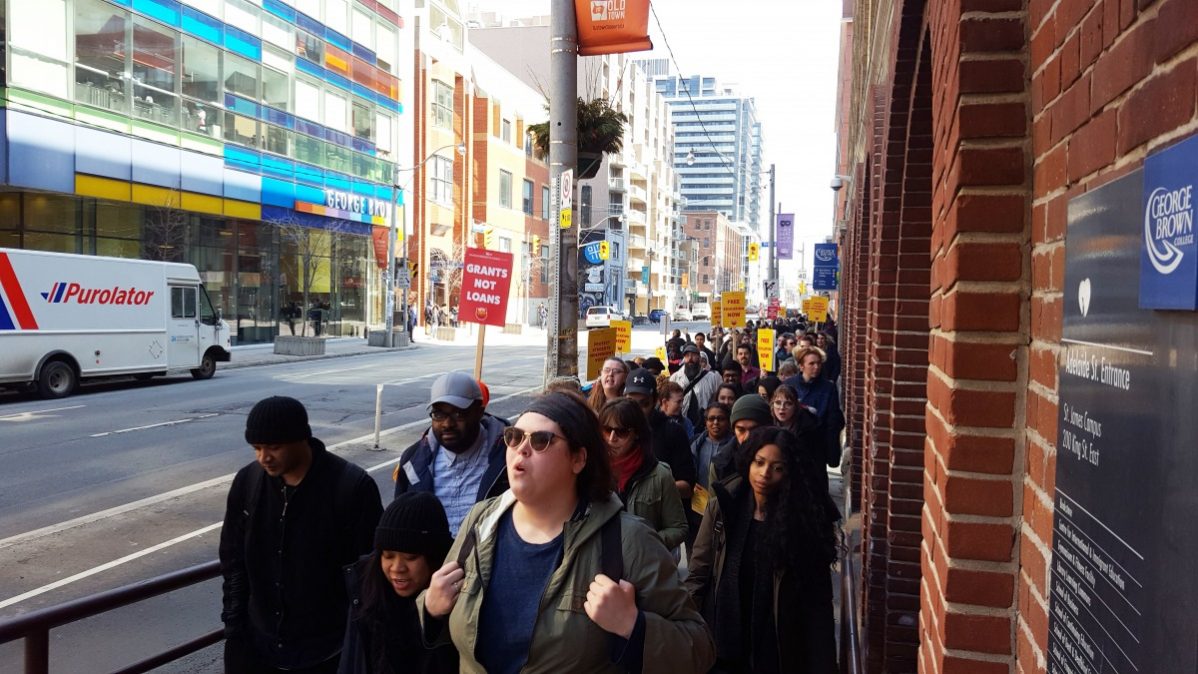In November 2019, the Divisional Court of Ontario ruled in favour of the Canadian Federation of Students-Ontario (CFS-O) against the Student Choice Initiative (SCI), a policy that would allow students the option of opting out of non-essential tuition fees at post-secondary institutions. Over one year after the policy was originally brought down, the provincial government of Ontario is set to appeal the court’s decision later this week.
Scheduled to be heard by the Ontario Court of Appeal between March 23 and March 24, the case will involve the Ontario Ministry of Colleges and Universities, the CFS-O, the York Federation of Students (YFS), along with the University of Toronto Graduate Students’ Union (UTGSU) serving as an intervenor.
Established in March 2019 by Premier Doug Ford’s Progressive Conservative government, the SCI directed Ontario colleges and universities to offer students the option to opt-out of paying non-essential fees used to fund things like campus media services, student unions, cultural groups, clubs, and other campus-led recreational events.
Although only in place for one academic term, the SCI had a substantially negative impact on the financial stability of many post-secondary student unions and institutions around Ontario, some of which are still recovering to this day.
“It’s trying to defund the student unions that not only provide a lot of services for students on campus, but also represent students with their rights on campus and also their academic rights on campus too,” says Kayla Weiler, national executive representative at CFS-O.
“This is the work the student unions at colleges and universities both take on, and it’s part of the main reason why they exist and were established in the first place.”
The SCI has also spiked ethical controversy about the government’s authority to intervene in the financial autonomy of post-secondary institutions.
In 2019, students of GBC participated in the #WeTheStudents movement in support of the CFS-O’s fight against the SCI. The Student Association of George Brown College’s (SAGBC) equity & advocacy manager, Michelle Pettis, says that within a couple of months, over 5,000 GBC students had signed a petition to protect student independent voices and defend the right to organize.
“What’s detrimental about the SCI is that it really leads to the detriment or minimization of all that students have already democratically decided what they need and want. Because it overrides what students have decided it means ultimately everything is at risk because there’s a false binary between what’s essential and what’s deemed non-essential,” said Pettis.
Posted on CanLII in December 2020, Justice Michal Fairburn’s decision stated that the appeal raises issues that affect all publicly-funded universities and colleges in Ontario, extending beyond the student groups and parties involved.
The upcoming appeal will review the proceedings of the original court trial. If the CFS-O is to win the appeal, that would continue to uphold the divisional court ruling that originally deemed the SCI unlawful back in November 2019.
“It’s a really bad policy. There’s no way to make it better other than just removing the policy altogether,” says Weiler. “We don’t accept this. We expect better for our students.”
A spokesperson from the Ministry of Colleges and Universities declined to comment on the decision, writing to the Dialog that “as this matter is currently before the Court, it would be inappropriate to comment further at this time.”
Note: A previous version of this article incorrectly labeled the 2019 student movement against SCI WeSpeakStudent. The Dialog regrets this error.


